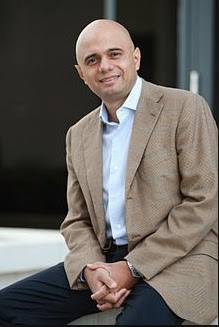Johnston Press chief executive Ashley Highfield: “The acquisition of the i newspaper in April was transformational for Johnston Press. Since the acquisition we have increased circulation considerably, using the extensive JP distribution network, and continued to grow market share. The market continues to be challenging and uncertainty surrounding the outcome of the Brexit negotiations has caused further softness in some segments of the advertising market, in June and July.”
Laura Davison, NUJ national organiser, in a statement: "Sadly Ashley Highfield is living in cloud cuckoo land if he thinks the acquisition of the i is transformational. Taking on extra debt and flogging off other assets will not result in salvation for Johnston Press. Our members see the actual reality in the company's newsrooms day in and day out. Content sharing between the i and other titles is a way of trying to mask low staffing levels in Johnston Press sites with all the consequent problems for quality journalism and stressed-out staff."
Liz Gerard on her SubScribe blog: "The trouble is that almost all of our local newspapers are now owned by one of three groups - Trinity Mirror, Johnston Press and the American-owned Newsquest - each of which seems to have problems with the definition of 'local'. Well here's a clue: if something is 10, 20 or 50 miles away, it isn't local. If your office is on an industrial estate when your readers are in the high street, it isn't local. If your reporter is in one town, your editor in another and your subs in a different county or even country, your product isn't local."
Liz Gerard on her SubScribe blog: "The trouble is that almost all of our local newspapers are now owned by one of three groups - Trinity Mirror, Johnston Press and the American-owned Newsquest - each of which seems to have problems with the definition of 'local'. Well here's a clue: if something is 10, 20 or 50 miles away, it isn't local. If your office is on an industrial estate when your readers are in the high street, it isn't local. If your reporter is in one town, your editor in another and your subs in a different county or even country, your product isn't local."
- Gareth Davies @Gareth_Davies on Twitter: "Little bit of news following last week's article and tweets about the issues facing local papers in the UK...So, to that end, I've set up @journalocal, which which aims to share the best examples of local journalism in the UK."
Donald Trump, as reported by NBC News: "It's so disgusting what's going on with the media that we have too win. We have to win."
Peter Preston in the Observer: "Turkey is not some faraway country. In media, and many other, terms it is a fragile democracy with a fast-developing economy. It has TV stations, newspapers and websites local and national. It is, in aspiration and often in fulfilment, part of the modern world. Yet, at a blow, its government can close 45 newspapers, three news agencies, 16 TV channels, 15 magazines and 29 publishers. It can round up 80 journalists (not to mention thousands of soldiers, police officers, lecturers, teachers and government employees). It can censor the internet, blocking access to more than 20 news sites."
Sunday Post journalist Darryl Smith on being one of the last two journalists to leave Fleet Street, as reported by BBC News: "As someone who always wanted to be a journalist, and with a keen sense of history as well, just looking at the buildings even now still excites me. It makes me smile, when I think of how I now have that place in history."
The Daily Mail on the decision by the Press Recognition Panel to meet on August 23 to consider whether to recognise Impress: "Campaigners fear that the meeting will see approval for the would-be Press watchdog Impress rubber stamped. The body is almost entirely funded by Max Mosley, who has been a key figure in calls for tougher Press regulation after he sued the now-closed paper News Of The World after it printed photos of him taking part in an orgy with prostitutes....If Impress is recognised, it could trigger implementation of a draconian law under which newspapers may have to pay the legal costs of people who sue them - even if the newspaper wins its case.”"
Bob Satchwell, executive director of the Society of Editors: "It does seem strange that the PRP should choose to make its decision when most people with an interest are likely to be on holiday. The majority of major publishers have long-term contracts with Ipso. The industry has voted with its feet."

































